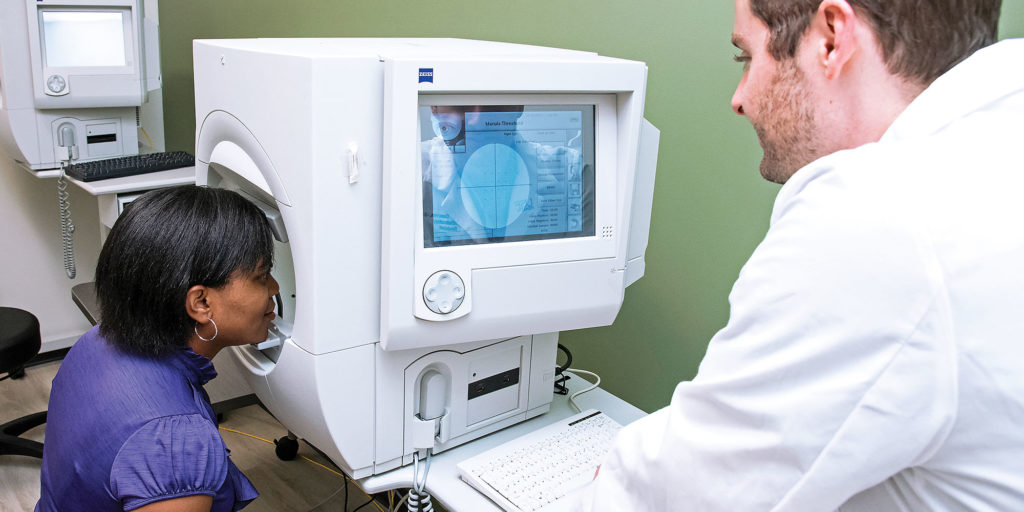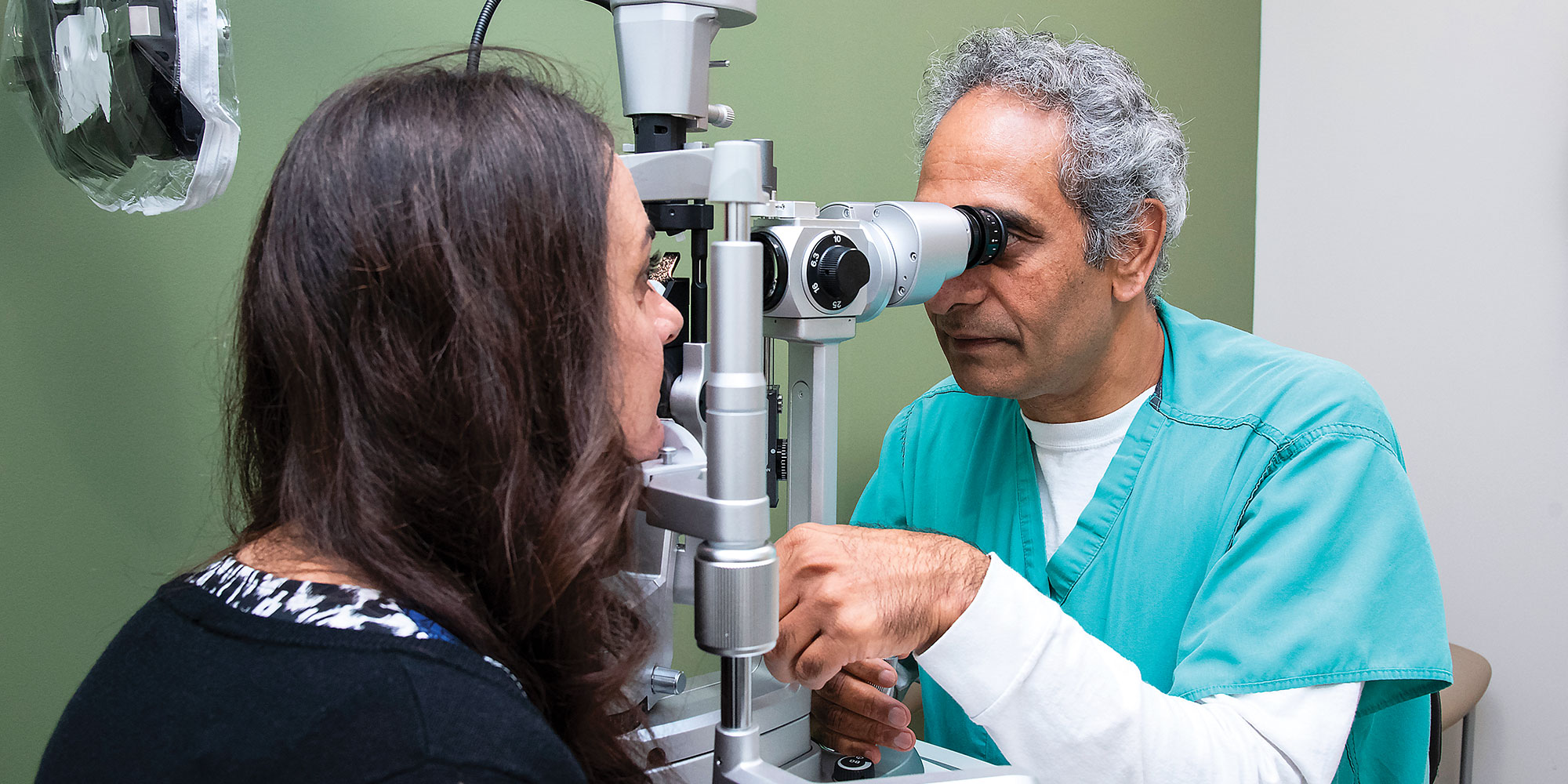While year-round blue skies and sunshine is one of the perks of living in Tampa, it’s something a significant part of our population never gets to experience. According to data collected by the National Eye Institute, 4.2 million Floridians over 40 have some type of vision impairment or blindness. Most causes of blindness in the both Tampa and the United States, including cataracts, macular degeneration and glaucoma, are age-related.
“The main risk factor of cataracts is just aging,” says Edgar Espana, M.D., a specialist in cataracts, corneas and external eye diseases at the USF Eye Institute. “The only treatment option is cataract surgery, which is an outpatient procedure that takes 10 to 15 minutes to do. Cataract surgery is one of the most cost-effective surgeries you can get because it’s quick, effective and safe.”
Age is also a risk factor for glaucoma, the world’s leading cause of irreversible blindness, says USF Eye Institute specialist Sandra Johnson, M.D. Glaucoma is most prevalent in the elderly, the Hispanic and Latino community, and the African-American community — three of Tampa’s largest populations.
“If you have a family history of glaucoma, you should be checked for it with an optic nerve exams,” Dr. Johnson says. “People think that if they get their pressure checked that’s sufficient, but you’ll miss the disease half the time. If you’re African-American, you need to start getting a complete eye exam around age 50, and then people of European ancestry typically can get their baseline exam at age 60.”

Another major cause of vision loss is additional medical conditions. Diseases like diabetes, multiple sclerosis, high blood pressure and cancers can lead to temporary or permanent blindness. Mitchell Drucker, M.D., a neuro-ophthalmologist at the institute, says the best way to avoid this kind of vision loss is to treat the underlying disease. Eye problems associated with multiple sclerosis in particular can flare up in Floridians due to a symptom called Uhthoff’s sign.
“When the body temperature elevates from a shower, from exercise, or even just from being outside in our hot sun, you can get symptoms of MS,” says Dr. Drucker. “If somebody’s at the beach or even out for a walk, they need to know their vision can go out, their legs can get numb and they can get weak as long as their body temperature stays elevated.”
While some blindness-causing conditions are unavoidable, Dr. Espana says the best ways to prevent or mitigate others, like infections and corneal scars, are to avoid trauma and have routine eye exams.
“For the corneal scars, it’s not abusing your contact lenses or sleeping with your contact lenses,” he says. “Then you get infections that create scars, and it becomes a problem.”
Prevention is key, says oculoplastic and orbital surgeon Jasmina Bajric, M.D., to help avoid intensive treatment.
“Just like when you get a mammogram to screen for breast cancer, you want to get regular eye exams to catch these things early,” she says. “If they are caught early, some of them can be treated without needing more invasive treatment.”



